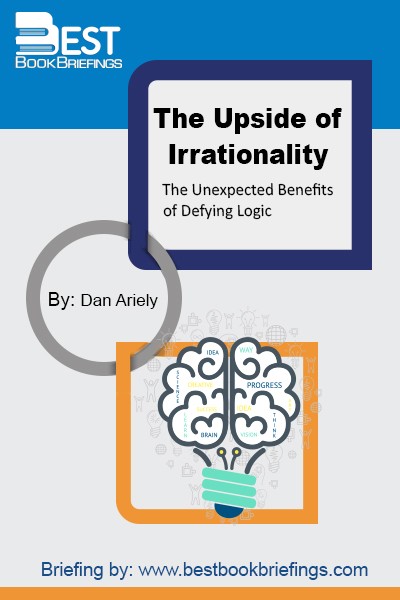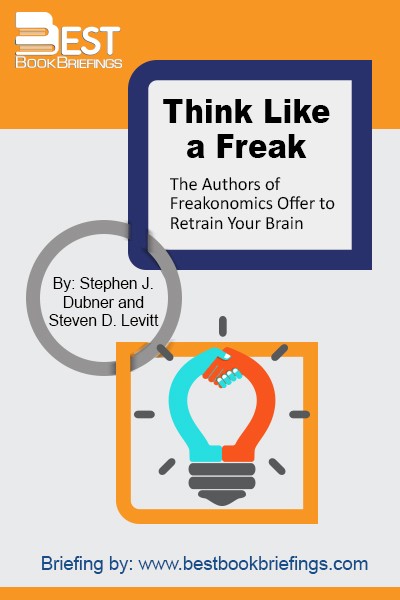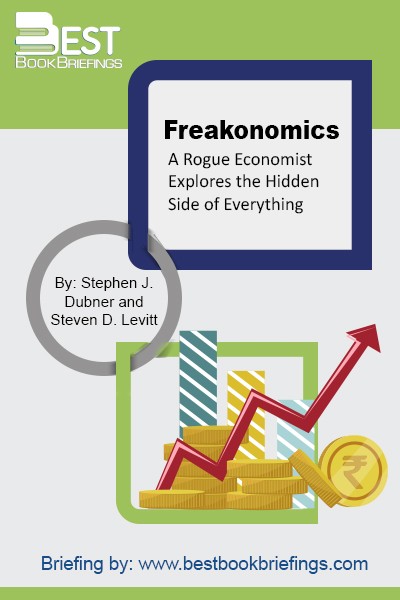Think Like a Freak
The Authors of Freakonomics Offer to Retrain Your Brain
Number of pages: 288
Publisher: William Morrow & Company
BBB Library: Economics and Investment, Personal Success
ISBN: 9780062218339
Editorial Review
Solving problems is hard. If a given problem still exists, you can bet that a lot of people have already come along and failed to solve it. Easy problems evaporate; it is the hard ones that linger. Furthermore, it takes a lot of time to track down, organize, and analyze the data to answer even one small question well. So rather than trying and probably failing to answer most of the hard questions, it might be better for everyone to learn to think differently. Thinking like a Freak means you should work hard to identify and attack the root cause of problems. It’s time to bury the idea that there's a right way and a wrong way, a smart way and a foolish way. The modern world demands that we all think a bit more productively, more creatively, more rationally; that we think from a different angle, with a different set of muscles, with a different set of expectations; that we think with neither fear nor favor, with neither blind optimism nor sour skepticism. That we think like a freak!
Book Reviews
Books on Related Topics

Ignore Everybody expands on MacLeod’s sharpest insights, wittiest cartoons, and most useful advice. For example:-Selling out is harder than it looks. Diluting your product to make it more commercial will just make people like it less.-If your plan depends on you suddenly being “discovered” by some big shot, your plan will

There is a story that is usually told about extremely successful people, a story that focuses on intelligence and ambition. Gladwell argues that the true story of success is very different, and that if we want to understand how some people thrive, we should spend more time looking around them-at such

Some researchers suggest that IQ tests are not good at predicting success because they do not measure the right forms of intelligence or the right combinations to predict how well people will do in real situations. But even that more nuanced way of thinking about intelligence falls short as an explanation

More than a century ago, psychologists Robert Yerkes and John Dodson performed different experiences in an effort to find out two things about rats: how fast they could learn and what intensity of electric shocks would motivate them to learn fastest. Some of the results aligned with what most of us

The distribution of wealth is one of today’s most widely discussed and controversial issues. But what do we really know about its evolution over the long term? Do the dynamics of private capital accumulation inevitably lead to the concentration of wealth in ever fewer hands? Or do the balancing forces of

If you are like most people, for the last 35 years you’ve been investing the Wall Street way. The Wall Street way tells that the proper way to invest is to own a selection of stocks and bonds, and no matter what happens, stay the course. They tell us not to




